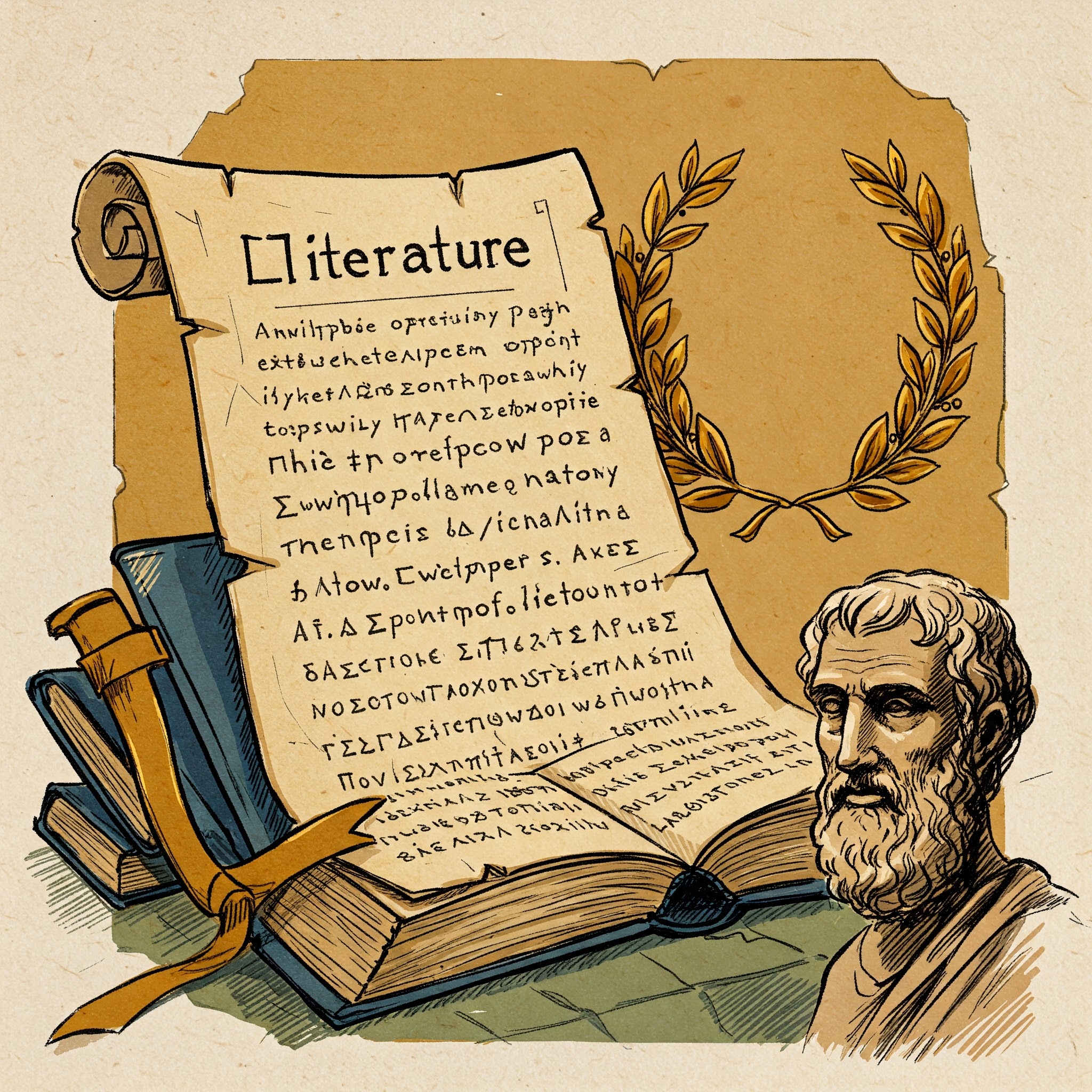Literature
Definition
Literature is a noun referring to written works, particularly those considered to have artistic or intellectual value. It encompasses prose, poetry, drama, essays, and other written forms that express ideas, emotions, or stories creatively.
Parts of Speech
- Noun
Pronunciation
American English
- IPA Pronunciation: /ˈlɪt̬.ə.rə.tʃɚ/
- Respelling: LIT-uh-ruh-chur
British English
- IPA Pronunciation: /ˈlɪt.ər.ə.tʃə/
- Respelling: LIT-uh-ruh-chuh
Etymology
The word "literature" originates from the Latin "litteratura," which refers to "writing formed with letters." It entered Old French as "literature" and subsequently Middle English, where it came to signify written works of artistic or scholarly merit.
Derivatives
- Literary (adjective)
- Literati (noun)
- Literature-based (adjective)
- Pre-literature (noun/adjective)
- Literaryism (noun)
Synonyms
- Writing
- Prose
- Works
Antonyms
- None
Usage
The term "literature" is used to refer to collections of written works or studies of written expression. Examples include "She is studying English literature at university," and "The library has a vast collection of classical literature."
Related Terms
- Fiction: A literary genre involving invented narratives.
- Poetry: A form of literary expression using rhythmic and aesthetic qualities of language.
- Drama: A genre of literature designed for theatrical performance.
Detailed Definitions
Noun
- Written works of artistic or intellectual value: Refers to written compositions recognized for their imaginative or cultural significance.
- Example: "Shakespeare's plays are masterpieces of English literature."
- The body of written works of a specific language, time, or culture: Refers to collective writings that define an era or region.
- Example: "Ancient Greek literature has influenced modern thought."
- Printed material used for reference or education: Refers to non-artistic writings, such as manuals or brochures.
- Example: "The promotional literature outlined the company's new products."
literature



🇨🇳 Mandarin
- 文学 (wénxué) - general term for literature
- IPA Pronunciation: /wə̌n.ɕɥě/
- Respelling in English: wen-shyue
🇮🇳 Hindi
- साहित्य (sāhitya) - general term for literature
- IPA Pronunciation: /sɑːɦɪt̪jə/
- Respelling in English: saa-hi-tya
🇪🇸 Spanish
- Literatura (literatura) - general term for literature
- IPA Pronunciation: /liteɾaˈtuɾa/
- Respelling in English: lee-te-ra-too-ra
🇫🇷 French
- Littérature (littérature) - general term for literature
- IPA Pronunciation: /liteʁatyʁ/
- Respelling in English: lee-te-ra-ture
🇸🇦 Modern Standard Arabic
- أدب (adab) - general term for literature
- IPA Pronunciation: /ʔadab/
- Respelling in English: a-dab
🇧🇩 Bengali
- সাহিত্য (sāhitya) - general term for literature
- IPA Pronunciation: /ʃahit̪t̪jo/
- Respelling in English: sha-hi-tyo
🇷🇺 Russian
- Литература (Literatura) - general term for literature
- IPA Pronunciation: /lʲɪtʲɪrɐˈturə/
- Respelling in English: lee-tee-ra-too-ra
🇵🇹 Portuguese
- Literatura (literatura) - general term for literature
- IPA Pronunciation: /litɨɾɐˈtuɾɐ/
- Respelling in English: lee-tee-ra-too-ra
🇮🇩 Indonesian
- Sastra (sastra) - general term for literature
- IPA Pronunciation: /sas.tra/
- Respelling in English: sahs-tra
🇩🇪 German
- Literatur (Literatur) - general term for literature
- IPA Pronunciation: /liˈteːʁatuːɐ̯/
- Respelling in English: lee-te-ra-toor
🇯🇵 Japanese
- 文学 (bungaku) - general term for literature
- IPA Pronunciation: /bɯ̟ᵝŋɡaku/
- Respelling in English: boon-gah-koo
🇻🇳 Vietnamese
- Văn học (văn học) - general term for literature
- IPA Pronunciation: /văːn hɔ̂k˧ˀ˨ʔ/
- Respelling in English: van hok
🇰🇷 Korean
- 문학 (munhak) - general term for literature
- IPA Pronunciation: /mun.hak̚/
- Respelling in English: moon-hak
🇹🇷 Turkish
- Edebiyat (edebiyat) - general term for literature
- IPA Pronunciation: /edeˈbijat/
- Respelling in English: ede-bee-yat
🇵🇰 Urdu
- ادب (adab) - general term for literature
- IPA Pronunciation: /əd̪b/
- Respelling in English: adab





